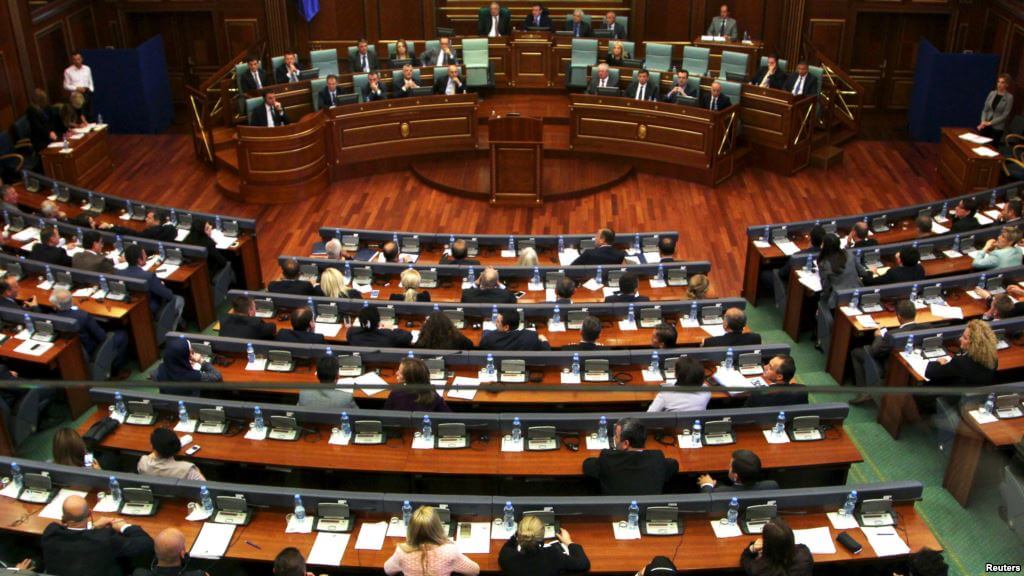The time to reach a compromise on Kosovo seems to be running out. Both sides need a break, but neither will get one. Pressure from Berlin, Brussels and Washington will continue; “Kosovo” – as Vucic himself said at a recently held round of the internal dialogue – “is the one thing they are interested in”. All for a reason: being in decisive stage of European integration, with a clear European perspective, Serbia can be pressured. In this way, after Montenegro, another country would be drawn away from Russia, narrowing its space for action. On the other hand, in its Western Balkans Strategy, the European Commission mentions Kosovo (Prishtina) in no other context except for the need to normalize the relationship and reach a “comprehensive agreement” with Belgrade.
So, we are at the “end of the beginning”. All points that way: diplomatic activity; wording of the Strategy; statements by numerous high level officials who have visited the region; and the scenes from North Mitrovica two weeks ago. Decision-makers in Belgrade wanted to keep the European perspective alive by slowly complying with obligations assumed by the Brussels agreement. That is politics; if someone thinks it is easy to give up sovereignty, even if questioned, better think again. Community (Association of Serb Municipalities) is the “prize” with which consent of the Serbian side to gradual integration could be awarded. In the meantime, the topic of dividing (and / or exchanging) territories is also being tested. Again legitimate: this idea, which of course is not new,is being considered for years in our society and the professional public, and therefore it will be among the proposals that will come out of the internal dialogue. It seems, however, that the state has failed here too. It is also clear why: the proposals for division and exchange of territory are going against mainstream ideas about the post-conflict stabilization of the Western Balkans region. Here (or it) is for the EU and Germany, above all, too much work, with a very uncertain outcome.
Therefore, now – again, unjustifiably late – the Community (Association) is in the spotlight. If for a moment (which is of course impossible), the discourse in which the “winner takes all” – and that “all” might be sovereignty – would be possible to read again the principles agreed upon on August 25, 2015. First, the Community is subordinated to the laws of Kosovo. This alone should have satisfied Prishtina authorities. Rada Trajkovic is right when she says that politicians in Kosovo are hostages to high expectations: their decision to leave the Community’s fate to the Constitutional Court has led us to this situation. The Serb community guarantees personal autonomy; decision-making in matters concerning identity (education, culture) and quality of life (social protection, development projects and their financing). Community was given the right to possess and dispose of property, something that the Serbs in Kosovo are constantly insisting on. It is far from the “Republika Srpska in Kosovo”: the judiciary, as we know, is integrated into the Kosovo system as well as the municipalities. The four of them from the north of Kosovo should propose a list of candidates for the regional police chief.
In Pristina, they emphasize that the proposal of the Community is contrary to the Constitution of Kosovo, which already envisages numerous mechanisms for minority participation. They believe that in this way, another “ethnically homogeneous third level of government” is being introduced (BPRG analysis), which further discourages the integration of Serbs into Kosovo society. This is only partly true, because in principle there is no indication of political autonomy. The community would have the mandate to convey problems and communicate needs, but would do it towards Pristina, not Belgrade. As for the second argument – and this is said without sarcasm – it would be great if the biggest problem with the integration of Serbs lies with the Community. The “constructive ambiguity” of language used by the EU, which has enabled various actors in Kosovo to interpret the agreed principles in different ways, where one speaks of “executive powers”, while the other refuses the very notion of it, has contributed to difficulties.
It may well be that it is the Community – not the territory – for Belgrade that “something” it should receive; which is why it is not good to present it as something bad. The idea of compromise is that both sides win and lose (something). What are the alternatives? First of all, Serbia can choose frozen conflict. It would then inevitably have to give up the process of European integration. The relationship with Germany as a key ally would deteriorate; after a period of confusion, someone else would take its place. Exactly who would satisfy the need for reform is not clear. The decision-makers would find themselves challenged to fully – ultimately – adopt a discourse of nationalism that is well known to our citizens, so well in fact, that they generally vote against it. No spin could overcome the shortage of investments, or opportunities that open up through integration. Wherever you look – the state (IPA, EIB, WBIF), agriculture (IPARD), education (Erasmus) – money needed for development projects comes from Brussels, and on the “wink” of Berlin and a number of other EU members. And finally, no conflict is completely “frozen”: there is always instability, the unpredictability that the situation in the absence of prevention mechanisms can lead to a conflict (imagine a new drop in speculators and arrests).
The problem is now on the Pristina side. The “carrot” offered is simply not large enough. In mutual accusation, normalization is of value only for civil society and a small number of those who are honestly cooperating. Prishtina is the one that is, at least in the short term, in a better situation. We also warn about the implications of the idea of expanding in Belgrade, that the long-term opportunities in international relations will change to the extent that the issue of sovereignty – state-legal status – can be re-established. This idea counts with strengthening of Russia and the weakening of the EU itself, the one community we want to enter.
The announcement of a unilateral declaration of the Community on April 20, we can observe the two – as a new risk, but also a driver for action. If Brussels is giving Pristina a four-month deadline to try to prevent the new tensions, it is extremely important to preserve the openness and maintain dialogue mechanisms open, regardless of everything.
The text was first published in Novi magazin weekly no. 363, 12 April 2018













